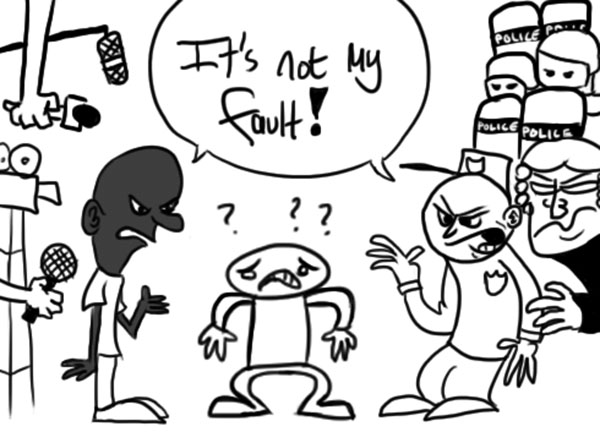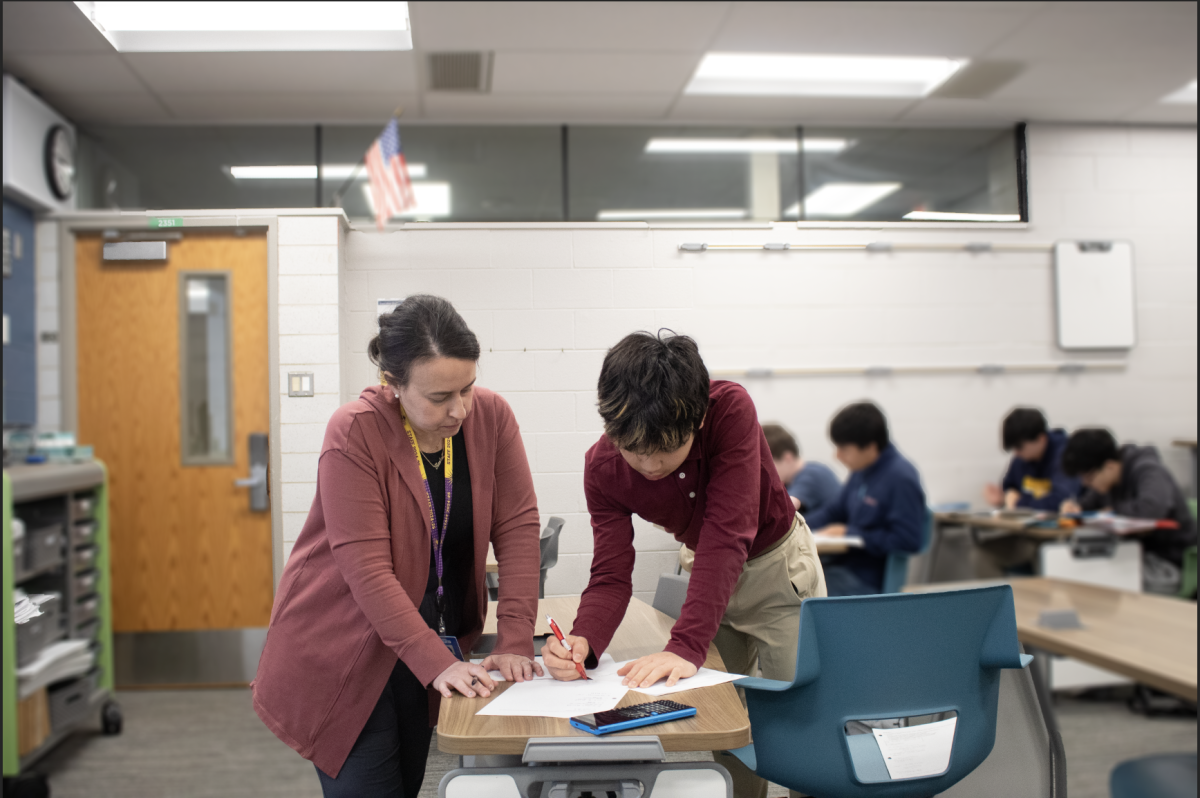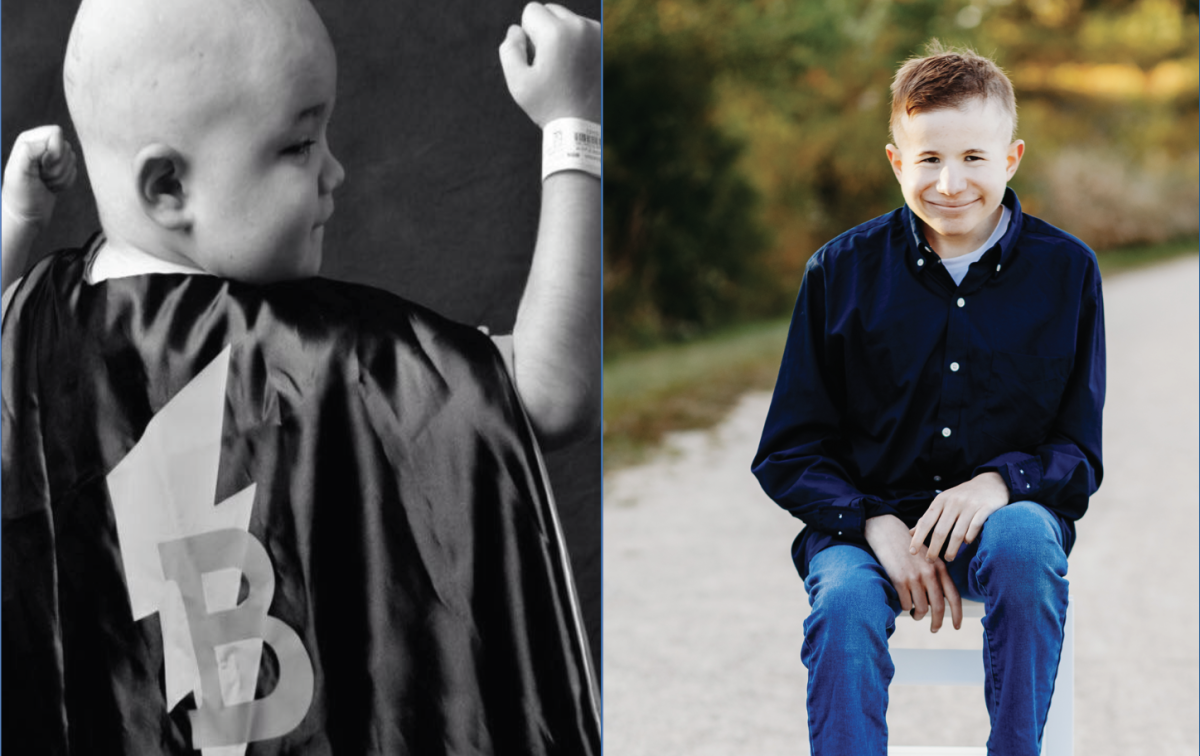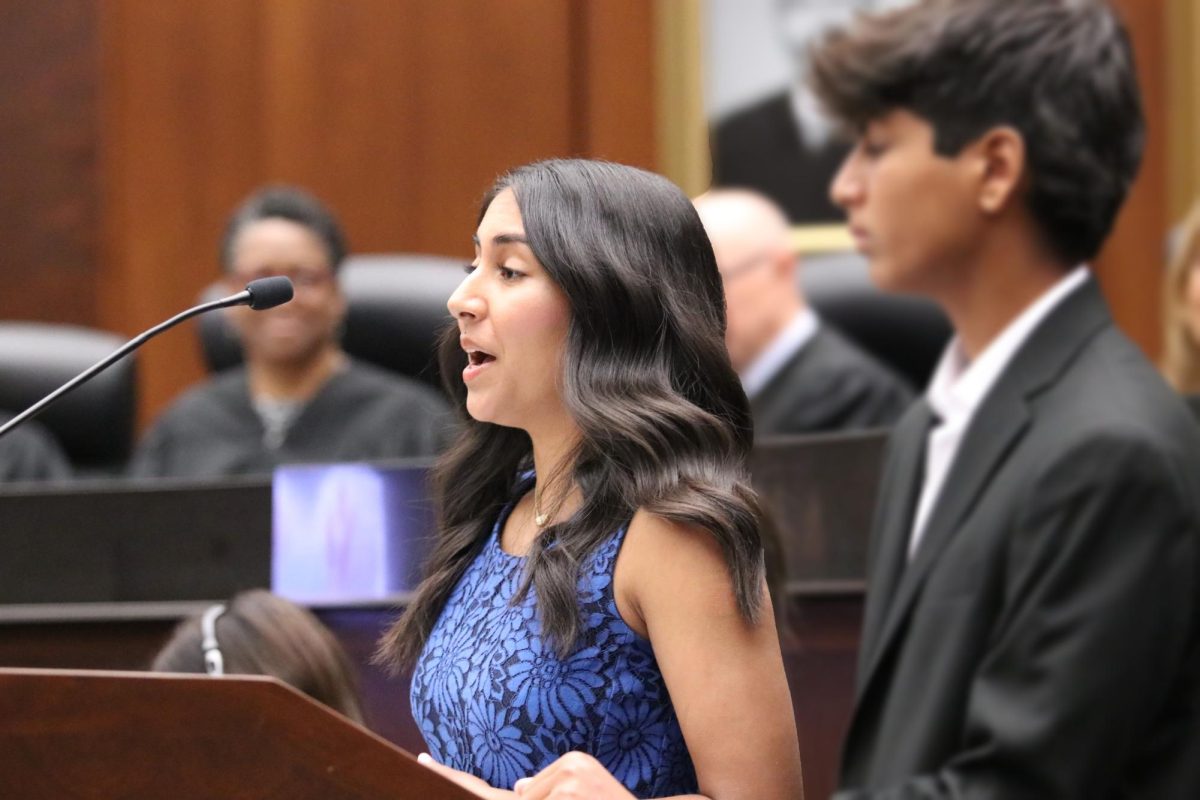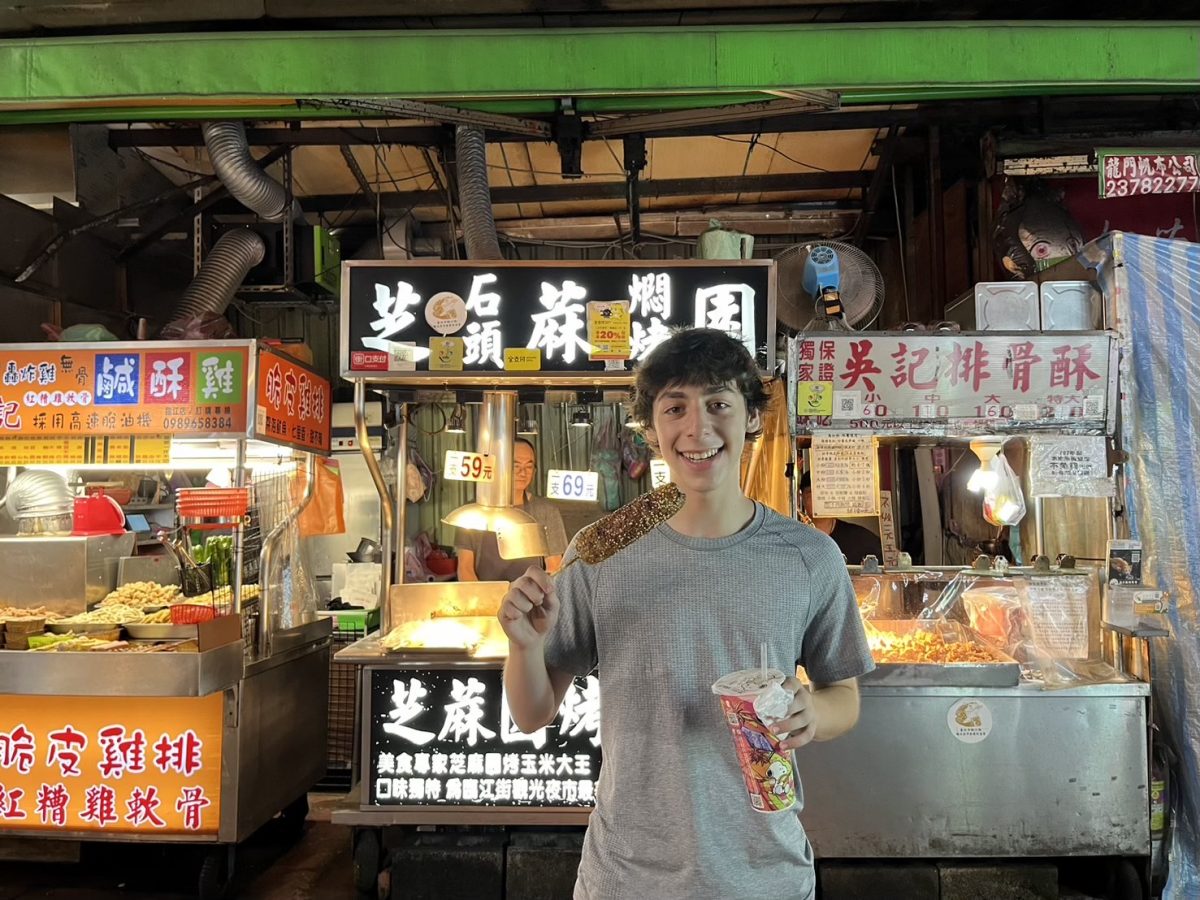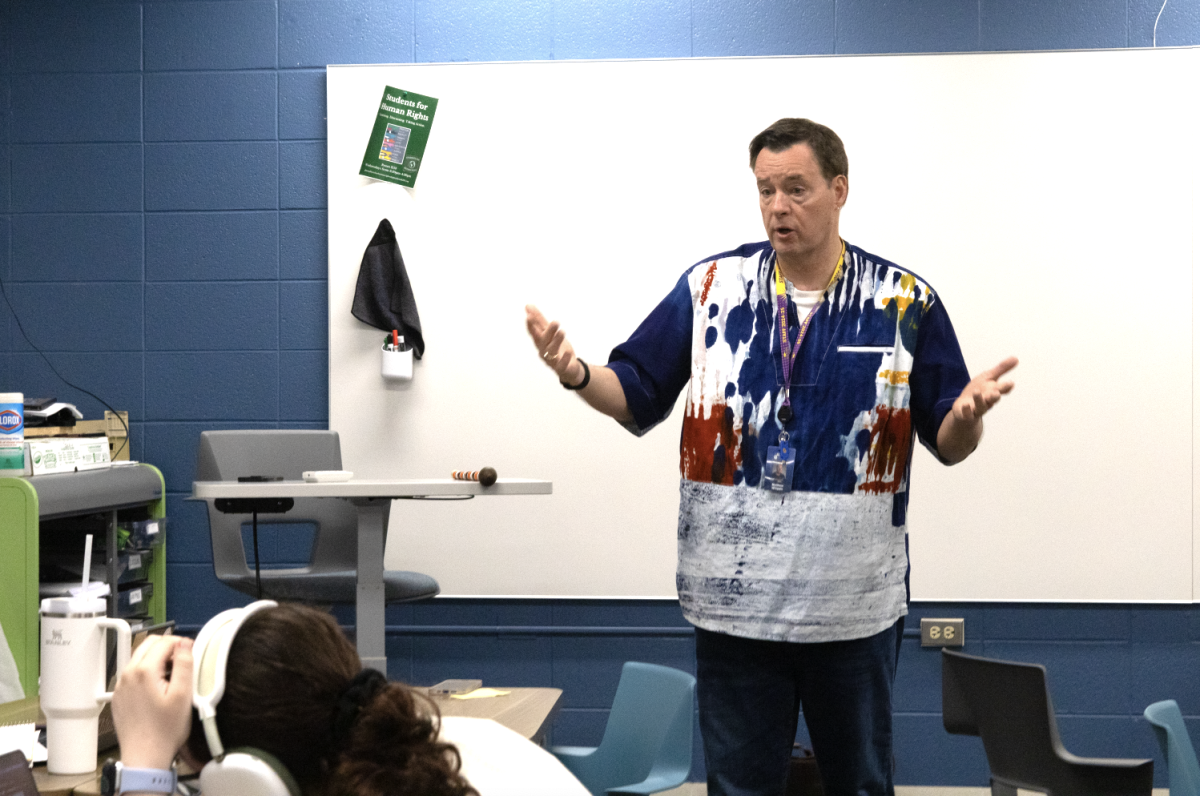Ferguson. New York City. North Charleston. Baltimore. Chicago. These cities represent a portion of the recent cases where people cite racial injustice and police brutality. Conflicts arise between citizens and law enforcement regarding the blurred lines between justice and racial discrimination and the ambiguity surrounding the details of these cases.
After Police Officer Darren Wilson fatally shot African American Michael Brown in Ferguson, Missouri on Aug. 9, 2014, there was an uproar of opinions and judgment regarding Wilson’s actions. Chicago Officer Russell Stanford* believes the event placed more tension on the already-complex relationships between police officers and the public.
“As police officers and law enforcement, we are always looking for ways to improve our relations with the community,” Stanford said. “Honestly, [racial injustice] put a spotlight on the friction in some communities, between police officers and the people they serve.”
Despite opposing viewpoints, Dean Ronald Bean, who is African American, takes a neutral position on the debate, stating how the perspective of an individual contributes to their stance. He believes the overall concern of the public should be commemorating the lives lost in these events.
“Everybody’s perception is different, and I think the truth lies some place in the middle,” Bean said. “I think there are some people that are responsible, but I don’t know if it’s fair for me to say, ‘For this situation, this was this person’s fault,’ or ‘For this situation, this was a different person’s fault.’ The tragedy is that people lost their lives.”
Although the media highlights the misfortunes that occurred at the hands of police officers, South senior Terry Giles* believes that police officers do their job of protecting the public from dangerous situations more often than not. Giles says the good deeds that police officers perform are being ignored.
“Racism [is prevalent] in the country, but police officers don’t get credited for all the good things they do and the people they save,” Giles said. “They only get noticed when a tragedy, like a person getting shot, occurs.”
Though police officers are receiving backlash for the actions of the officers involved in the aforementioned situations, Stanford defends his opinion that they were justified in their actions. One of the consequences of these situations included a higher sensitivity the police must have when dealing with public matters.
“They have to be aware of where they are and what the community there needs,” Stanford said. “It is unfortunate that [the Ferguson case] has happened, but in terms of police work, the officer was justified in stopping somebody who has committed a strong-arm robbery, and he was making a lawful police stop when he was attacked by the person who unfortunately got killed. [In the Eric Garner case], those officers were undertaking a lawful action [as well]. When Mr. Garner […] resisted arrest [and the officer’s chokehold suffocated him], he unfortunately died as a result of that. From a police perspective, it’s not racial profiling; you are profiling illegal activities or illegal actions.”
Though some of the actions of police officers may be construed in different ways by the public, Stanford advises others to keep in mind that the duties of an officer aren’t always race-related.
“Just be mindful that police officers have a difficult job,” Stanford said. “They often have to make life-and-death decisions in a very short matter of time. […] If we’re told that somebody just robbed them, after we get a decent description of the [robber], that would be the person we are looking for. It’s really based on crimes rather than incriminating a section of the community for no reason.”
However, contrasting opinions emerge with South sophomores Nate Shannon and Joseph Walker* and junior Devon Franklin*.
“[For example, if] there’s a police officer doing his patrol […], we’re black and we don’t know who the cop is or what that cop would do, so our first instinct is […] to run […] because we feel that the cop might attack us […] [because] we don’t know if the cop is racist or not,” Walker said.
Walker’s mindset was induced as a result of black individuals who have previously been persecuted. An example of this is when Franklin, his friends and his family were apprehended by the police on the South Side of Chicago.
“Me, my uncles and some friends were walking from the park, and nobody was doing anything wrong,” Franklin said. “As soon as I was about to turn, in the corner, there was a police car coming, so my uncles were telling all of us to just go, so we turned the corner because they knew they just liked to pick on people. Then the officer got out of the car and, out of all the people, points his gun at me, and I [was] 10 years old [at the time]. He points the gun at me, puts me in the car, and then he puts everyone else in the car for no reason.”
Shannon adds to this by commenting that the public is paying more attention to the riots than what they stand for. He said if the public shifts perspective and thinks more about what the African Americans and other ethnic minorities are fighting for, change is imminent.
“They’re giving too much attention to the wrong thing […], like, ‘Oh my God, the black people are rampaging or throwing riots,’ but they have a reason.” Shannon said. “They’re not being treated right, so you should change [how they’re being treated] instead of trying to make them go back home.”
While Bean agrees that racial injustice does exist, he acknowledges it occurs in a bigger scope than the media portrays. The police officers involved in these cases are not the only ones representative of this fault, nor is the situation of racial injustice narrowed down to just Caucasian police officers victimizing other minorities, specifically African American offenders.
“Do I think there’s some racial injustices in the world? I do,” Bean continued. “[However], I think it’s a much bigger picture than just how it’s being played out in the newspaper, and how right now it’s being portrayed as the police against African Americans, specifically white police officers against black victims or black offenders. I think it’s more than just that because I think there are situations where African American police officers have killed white offenders. It’s a difficult situation, and I don’t think it’s as cut and dry as the media wants us to believe it is.”
*Names have been changed



